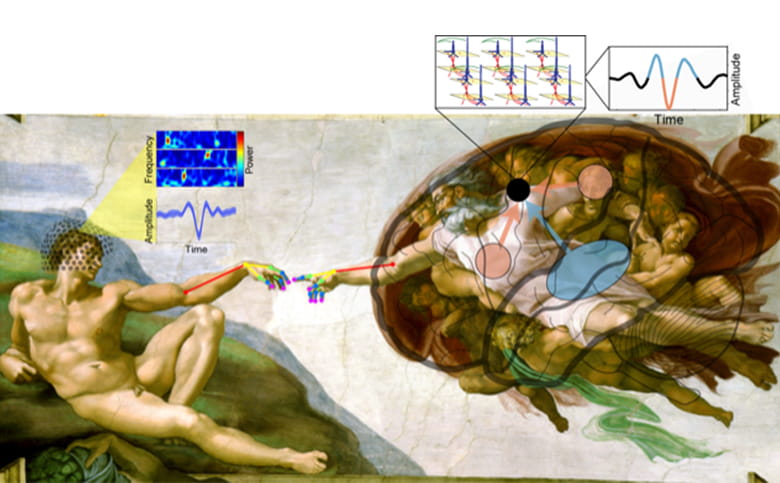
Seminar: Mechanisms and functional role of sensorimotor beta bursts
November 13 at 2:30 pm on Zoom.
Mechanisms and functional role of sensorimotor beta bursts
For the next NeuroSchool seminar, we are pleased to welcome James Bonaiuto, CNRS Researcher (CR) at Institut des Sciences Cognitives – Marc Jeannerod (Lyon), UMR 5229, who will present his research on beta sensorimotor bursts. The seminar will take place on November 13, 2020, at 2:30 pm, by videoconference via Zoom.
Registration to receive the connection link is at the end of this page.
Attention, PhD Program students, please also register via this form on Ametice.
James Bonaiuto is a CNRS Researcher (CR) in neuroscience at the Institut des Sciences Cognitives - Marc Jeannerod, CNRS. His research interests include motor control, action-based decision making, and cortical beta activity. He recently has obtained an ERC Consolidator Grant (ECoG-2019) to study sensorimotor beta bursts in terms of mechanisms, functional role, and development using multi-level approaches from computational modeling, neurophysiology, and M/EEG of the motor system.
Mechanisms and functional role of sensorimotor beta bursts
Motor cortical activity in the beta frequency range (13-30Hz) is a hallmark signature of healthy and pathological movement, but its behavioural relevance remains unclear. Recently, it has become apparent that, rather than sustained oscillations, beta activity often occurs in discrete, transient bursts. The prevailing computational model of beta burst generation suggests that such bursts are produced by distinct inputs to deep and superficial cortical layers. The rich temporal and spatial structure of beta bursts provides an opportunity to more precisely probe the relationship between motor cortical activity and behaviour. However, this is tempered by a lack of understanding of the mechanisms underlying the generation of sensorimotor beta bursts and their functional role in motor behaviour. Using high-precision magnetoencephalography (MEG), we recently provided evidence that lamina-specific inputs do generate beta bursts, and that beta burst timing is a stronger predictor of single-trial behaviour than beta burst rate or single-trial beta amplitude. These results demonstrate the possibility for determining laminar specificity of dynamic neural signals in non-invasive recordings and indicate that beta activity may have a more active, information-encoding role than previously thought.






